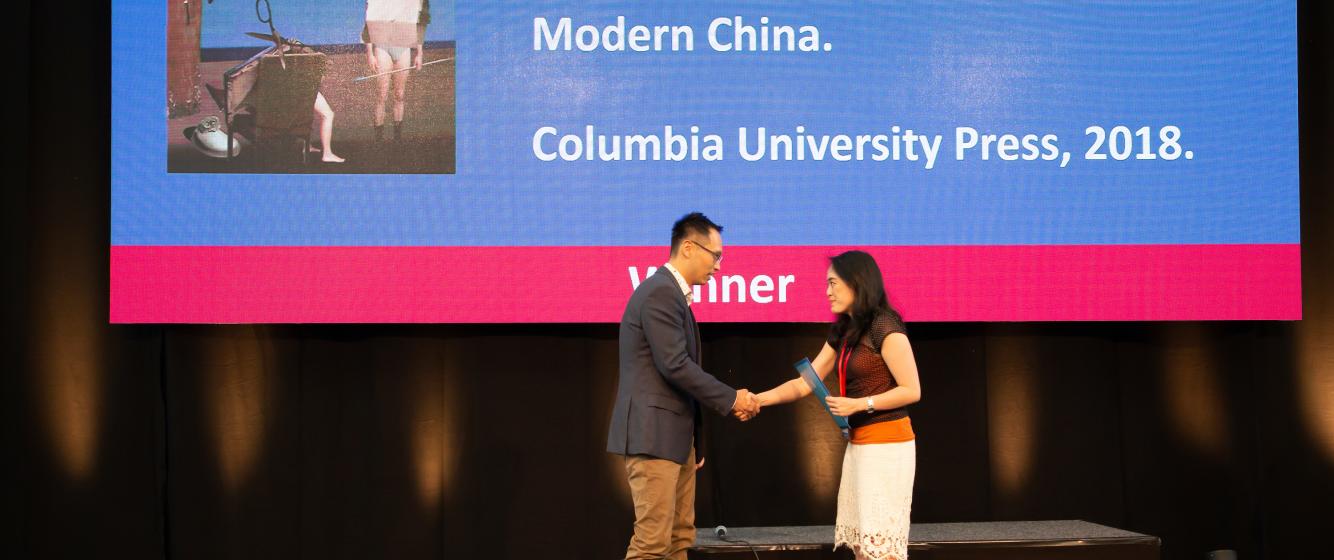
Shortlist, Winner and Accolades IBP 2019 Humanities
Winner of IBP 2019 Humanities
Howard Chiang, After Eunuchs: Science, Medicine, and the Transformation of Sex in Modern China. Columbia University Press, 2018.
Howard Chiang’s After Eunuchs is a sophisticated and unique study of sexual knowledge production in modern China, tracing the emergence of new discourses of sexuality through an immense wealth of scientific and medical writings and popular vernacular material in late Qing and republican China, as well as their continuing resonance in late 20th century debates about transsexuality and queer activism in the broader Sinophone world. In its startling readings of bioethics, gender and regionality, as well as in its restoration of the eunuch figure to the centre of Chinese history, it poses a theoretically informed challenge to studies of Chinese modernity as much as to broader histories of science beyond Europe.
Reading Committee Accolades IBP 2019 Humanities
Shortlist IBP 2019 Humanities
David R. Ambaras, Japan’s Imperial Underworlds: Intimate Encounters at the Borders of Empire. Cambridge University Press, 2018.
David Ambaras’ Japan’s Imperial Underworlds is a fascinating account of the fraught lives lived at the lowest rungs of society between a rising Japanese empire and colonised, war-torn Sinosphere. Ambaras brings into focus how these trafficked and undesirable subjects caught between and across borders challenged official narratives about migration patterns, trade networks, and the hierarchies of national belonging. Ambaras traces flows of pirates, peddlers, undocumented women, child traffickers and other subalterns who blithely ignored imperial borders in pursuit of personal agendas, and whose movements, he shows, threatened Japan’s imperial order and impelled stronger sovereignties, and borders, into being.
Shelly Chan, Diaspora’s Homeland: Modern China in the Age of Global Migration. Duke University Press, 2018.
Shelly Chan’s Diaspora’s Homeland offers a re-interpretation of China’s relationship with its diaspora in temporal terms, restoring to China’s history a series of ‘diaspora moments’ which fundamentally constitute the emergence of Chinese nationalism over the twentieth century. In accessible and elegant prose, covering major periods of change, from early twentieth century reform and revolution to late twentieth century return migration, it argues that modern China is in an important sense a product of the invention of a homeland by its diasporic populations, thus connecting the fields of Asian American studies, modern Chinese history and diaspora studies in productive and engaging ways.
Jorge Flores, Unwanted Neighbours: The Mughals, the Portuguese, and Their Frontier Zones. Oxford University Press India, 2018.
Jorge Flores’ Unwanted Neighbours is a remarkable study of Mughal and Portuguese conceptions of the frontier, which evolved and sharpened in moments of friction and negotiation with each other, as well as in encounters with the surrounding actors of the Central Asian world, from the Ottomans and Safavids through to the thickening flows of European company traders. The frontiers Flores constitutes through letters, reports, memorials, and chronicles, attest to the tensions and anxieties in the Luso-Mughal encounter, whereby the two states, their elites and proxies, entered into one another’s lexicon as they sought to consolidate their hegemony over this contested geopolitical landscape.
Ethan Mark, Japan's Occupation of Java in the Second World War: A Transnational History. Bloomsbury Academic, 2018.
Ethan Mark’s Japan’s Occupation is a tour de force that grasps wartime Java as the locus of an intense contestation between civilian and military actors engaged in Japan’s southward imperial expansion, the polemics of Orientalism, anti-Western liberation, and Indonesian unification. It deftly maps the colonial structure of rule alongside Japanese-Indonesian cooperation and interaction that aspired to see Java integrated into Japan’s Great Asia, while also considering the cultural and political dynamics that shaped Java’s place prior to Japanese occupation and post-war realities that placed the newly independent nation of Indonesia in Sukarno’s hands.